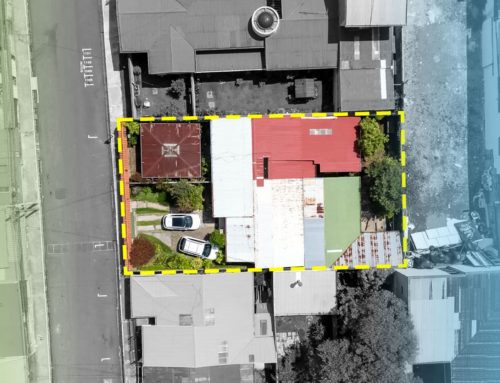A vital part of a smart investment is knowing the panorama of the market and the business itself, when it comes to real estate it is extremely important to sit calmly, study and analyze all the available options, because there are plenty and it can be easy to get disoriented. Buying a property on pre-sale can be an incredible plus in terms of long-term savings, but always try to look for the following key alerts, to be successful and not overlook anything.
A pre-sale property is an asset that is acquired before construction is completed, project plans are reviewed in its initial stages before it is placed on the market. Therefore prices are usually more affordable economically speaking.

“The pre-sale is very competitive because sometimes we can save up to 15% on the property and there is also greater flexibility in the payment of the inicial bonus which can be financed within the period that the project lasts to be built – which goes between 12 and 18 months -. “
Now, as a user you are probably bombarded by information online, there are so many properties and it can be difficult to focus. Please pay attention to the following tips to make good use of your time and money when considering investing.
Take the time to get to know the area
A vital point of real estate is location. It is very important that you carefully analyze the area where the project you want to participate in will take place. This includes knowing what facilities are nearby: supermarkets, job offers, schools, medical centers, etc. You should even consider the maintenance of the area, are there well-kept green areas, clean springs, quality roads … how safe is the area? Even if you are not going to live there immediately, it is a point of great weight, decisive in making your decision.
Be clear about what to expect of the final product
It may seem obvious, but it is necessary that you know in detail what are the objectives of the development, what will be the final finishes and what will be the price for them. You can actively participate in some of the project decisions, such as the materials that will be used for certain finishes, brands, colors, etc. Ask for samples of everything you can to avoid disappointing surprises or having to invest extra in remodelings that may have been done from the beginning.
On the other hand, when the property is a home within a residential complex, find out in advance the rules that are intended to be stipulated. Such as the use of common rooms, amenities, parking, maintenance fee, pet admission regulations, among others.
This point is sometimes unnoticed, but it is extremely valuable to consider whether these amenities are according to your tastes, because of course access to them will be included in the final price. For example, if the area includes a gym and a swimming pool, but you do not plan to use or take advantage of these areas, you may be able to look for a pre-sale property that offers other spaces more in line with your lifestyle.

Calculate well all the payments to be made
Again, this is an essential step that is sometimes taken for granted and ties in very well with the previous topic.
When buying in pre-sale, you must take into consideration the advance payments, monthly payments that must be given before receiving the property (depending on the financing you have), the payment of the deed, the costs of the real estate loan if you require one, and even moving costs, maintenance fees.
Investigate the experience of the developer
Since pre-sale projects take time to complete, you should take the precaution of ensuring that the work is legitimate and that you can see the finished work, either to live in or to rent, and see a return on your investment. Ask the following questions at a minimum:
- For how many years have they been working?
- What other projects have they done?
- How much capital gain have these projects generated?
- What kind of legal backing do they have?
Consult directly with the realtor and ask them for legal documentation to support your arguments. Ask with past clients, both final consumers and suppliers or the construction company that is contracted. Look for recommendations online and make sure you have the reference of an expert in the area, both legal and real estate.








